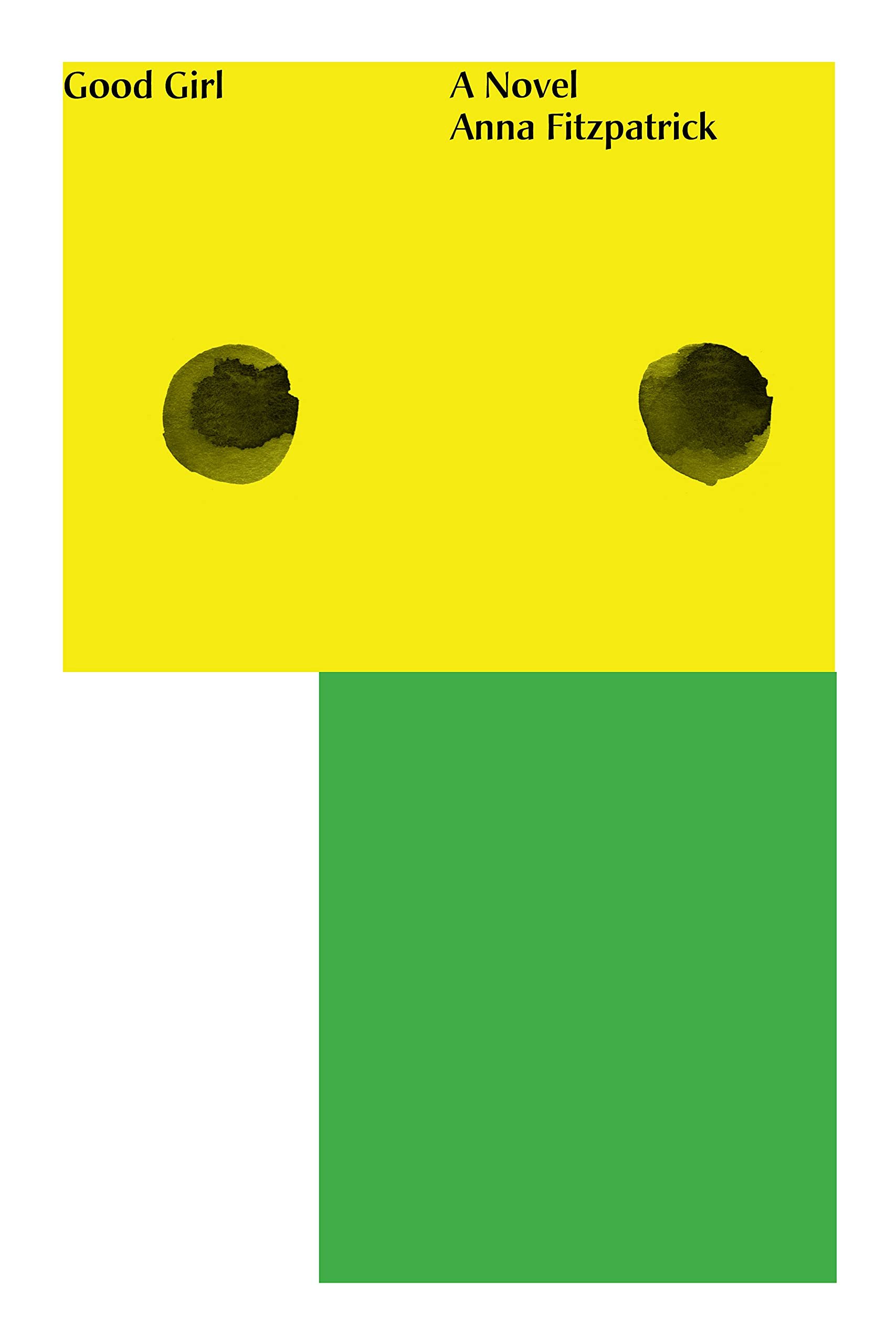What it means to be good: Review of Anna Fitzpatrick's Good Girl
Anna Fitzpatrick, Good Girl.
Flying Books, 2022. $26.95 CAD.
Order a copy from Flying Books.
When multiple independent bookstores are keeping the plastic wrap on Good Girl by Anna Fitzpatrick, leaving readers unable to peek in until after it’s purchased, I expected it to be a sexy book. The novel carries the promise of intimacy. For readers looking for some literary smut, they will find it. However, they’ll also find so much more. For Lucy, the protagonist of Good Girl, this is her odyssey for real intimacy and what it means to be ‘good’: whether in bed, as a writer, as a daughter, or as a friend. Anna Fitzpatrick deftly weaves a vibrant journey, allowing readers to question what it means to be sexually independent; the pressure women continue to deal with; and society’s limiting definitions of ‘sexy’ and ‘perverse’—all while making us laugh, no less.
When I started Good Girl, it took some time for me to become invested, like a pilot of a TV show I wasn’t ready to commit to yet. It opens with Lucy’s first real BDSM arrangement with Henry, a man she meets on Tinder. Henry already has a serious girlfriend, but they are polyamorous. Lucy has known for a long time that that this is what she finds arousing, what she needs to be sexually fulfilled, yet she has struggled to find partners in the past with whom she can communicate her desires of being dominated. Henry is a dominant, and he values boundaries and consent. Although Lucy is impatient, Henry instills the traffic light system in their sexual relationship before it begins (green means go, yellow means pause for a minute to check in, and red means stop completely). Not all of the men Lucy encounters are this respectful. Despite Henry’s best intentions, he’s still overall meh as a man. I found myself frustrated with Lucy’s obsession with him and the irritating journal entries she writes him while on vacation. When he dumps her, I was relieved (don’t worry, readers, this is a small spoiler. Lucy will have more men to call ‘Sir’ in her life).
When a man brings in a box of used books and magazines to try and peddle them to the new-books-only bookstore Lucy works at (a moment all booksellers will know well), Lucy happens to discover a literary gold mine: a 1970s magazine for edgy teens called Smash. She’s never heard of it before, but she becomes obsessed. Why did it only last a year and a half in print? Was it an early, unrecognized feminist magazine, even though the masthead featured mostly men at the top? Lucy creates a fantasy around writing an in-depth exposé on Smash, imagining it will be the piece that finally turns her into a real writer. Although she does a deep dive online and pursues an interview with one of the magazine’s writers, Jennifer Flounder, Lucy struggles to turn the fantasy of writing into reality.
As I continued reading, I realized why I initially was frustrated with Lucy: she was so overwhelmingly relatable. She struggles not to be selfish with friends, she ignores her mother’s texts, she subscribes to literary magazines but doesn’t actually read them, and she wants to be a writer but can barely keep a journal without writing about how horny she is. Lucy wants to be taken seriously, but she also can’t get over her own neuroses: “Part of being a journalist, I’ve been told, means not taking everything personally, but part of being Lucy means everything is personal, all the time, unless I’m convinced otherwise.” (95) I know that girl. I’ve been that girl! Anna Fitzpatrick has offered up a brilliant character sketch, full of sharp, realistic dialogue and niche literary details that made me cackle. Lucy’s desperation to be ‘good’ and her continued failure hooked me in—I was frustrated because I cared about Lucy’s story.
One thing I adored about Good Girl is how loud it is: people interrupting each other, the inability to flirt in loud bars, the sound of cartoons, and most notoriously, lots of porn. Porn is the background soundtrack to the book. When Lucy is bored, avoiding writing, or just unwilling to do anything else, she masturbates. The walls are thin in her apartment building, so she and her neighbour Mr. Fillipelli hear everything the other is doing. Lucy knows he masturbates to Golden Girls, while Lucy prefers doing Google searches along the lines of “bdsm spanking porn good story hot” (25). Although Lucy does occasionally struggle with shame for what she desires and does with partners, she also actively pursues being shameless about her sexual appetites. I appreciated how Anna Fitzpatrick shows how sexual shame can be hypocritical, but it’s also something that can be addressed and potentially unlearned.
Lucy’s most compelling relationships are with her two friends: Sasha, her best friend since first year university, and Nora, a fifties-something mom and former punk-rocker who works with Lucy at the bookstore. Two different women who support Lucy and challenge her. Her friendships led to some of the most rewarding scenes in the book, such as her trip to Los Angeles with Sasha. Even though I initially came to Good Girl for the potential sexiness, it was moments like Lucy finally standing up to a man (mid hook up, I might add) when he’s overly critical of her best friend and writing that really cemented this as a penetrating novel.
There were areas of Good Girl that took me out of the story as a reader, although they weren’t often. These included some cringe-worthy moments that were difficult to read, like Lucy trying to convince Nora of Nora’s past trauma so that Lucy wouldn’t feel like a bad feminist. I also struggled with the diary entries, and how Lucy continues to write to ‘Sir’ even though it’s not really to Henry anymore. The entries became too prescriptive, especially towards the end: “Can you imagine? If I turned out to be the Daddy this whole time?” (261). I did have some concerns over the escalation of the Smash debacle, but Lucy’s anxiety over what she uncovers and whether she is responsible to write the article was compelling: “I have once again tangled myself up in expectations I’ve invented for myself, a test I’ve failed with nobody keeping score.” (243-44). The way this plotline looked at culpability and whether trauma should be dragged out was handled in a skillful manner.
From the quirky bookstore employees to the pig magazine publisher, from the misogynist journalist to the vanilla jock, from a teen steampunk couple to a 13-year-old trying puppy play, Anna Fitzpatrick has created a gift of characters who are representative, believable, and complex. Lucy, in particular, has a voice that will stick with you like an old friend, sinking under your skin. The ending offers a chef’s kiss moment, a final laugh for readers, proving Lucy has learned a lot about taking care of herself, but she’ll still always be a little self-absorbed. Good Girl is a charming, cheeky, and investigative debut novel, and I can’t wait to see what Anna Fitzpatrick writes next.
Michaela Stephen (she/her) is a queer writer based in Toronto, ON, where she works at Second Story Press. She has been published or has work forthcoming in Grain, CV2, Canthius, This Magazine, and The Humber Literary Review, among others. She lives with her cat, Banana Loaf.


